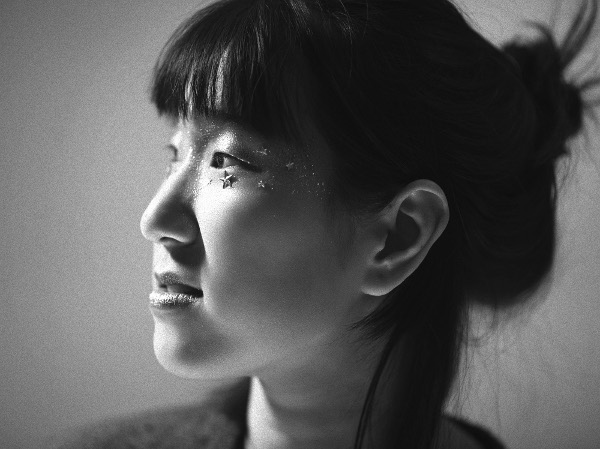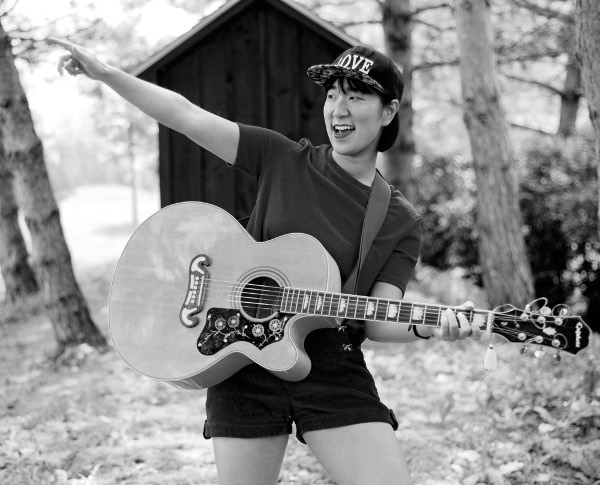
PHOTOS/HANNAH MARIE
Editor’s Note: Janice Jo Lee’s album, Sing Hey, begins with three deep breaths, as if she’s thinking through what she has to say before launching into a kind of slam-sung poem of tough self-talk. That opener, “All the Times You Were Silent,” kicks off a seamless and stunning mix of soulful folk, blues and hip hop about struggling to pay the bills, standing up for one’s self and fighting for justice and community. Known for her music, poetry and theatrical work in Kitchener, Ontario, Lee offered great insight into her work when she spoke with the People’s Tribune’s Danny Alexander.
PT: “Why do you focus on social justice?”
Janice Jo Lee: “When we talk about social justice, we are talking about society, which for me is made up of the relationships between people—friendships. I believe strongly in what Bell Hooks says, that without justice there can be no love. If you love me, and I love you, we must be dedicated to do the work to build bridges across our differences so that they do not become issues. This is what I write about in my music, the struggles of loving the people around you.”
PT: “And music’s role?”
Lee: “Music can transcend words because you feel music in your body, in your ears, in your head, in your heart, in your chest. There’s so much joy in music, and I think that’s necessary to prioritize as we build communities. To remember why we’re doing this. It is very celebratory.”
PT: “Many of our readers have suffered from the poisoning of their water supply, and you sing about this subject. What inspired it?”
Lee: “The song is called “Oil in the Grand.” It’s a new song. It will be on my new album Ancestor Song. My song is directly tied to the oil spill in Michigan. There’s a pipeline that crosses the Grand River called line 9. It will be carrying diluted bitumen from the tar sands in Alberta all the way across Southern Ontario to Montreal. It crosses our watershed in Waterloo Region, the Grand River. It crosses Six Nations Treaty territory. And there has been a lot of organizing around stopping this pipeline and the reverse of its flow.”

PHOTOS/STEFAN CHIRILA
PT: Your album begins with a kind of political toolbox, but climaxes with some gorgeous pop music, like the wonderful “40 km to Pickle Lake.” How did you see it fitting together?
Lee: My intention with the album was to put the songs I think are the most urgent at the front. Organizing, politics and education is the means, and living a fulfilled joyous wonderful life full of friendship is the ends.
“Pickle Lake” [a song Lee wrote about a time in her life when she had to walk all day to reach a store] ends with a sing-along on the oohs. I’m a folk musician. I want everyone to sing along always. It’s a love lullaby for friendship…
My art is embedded in my community. Building relationships takes time, building trust takes time. I think if we were able to communicate and not be afraid about what we feel, be patient and understanding with each other instead of suppressing our feelings, we could be so much closer.
‘Without justice there can be no love’
Latest
The People’s Tribune opens its pages to voices of the movement for change. Our articles are written by individuals or organizations, along with our own reporting. Bylined articles reflect the views of the authors. Articles entitled “From the Editors” reflect the views of the editorial board. Please credit the source when sharing: peoplestribune.org. Please donate to help us keep bringing you voices of the movement for change. Click here. We’re all volunteer, no paid staff. The People’s Tribune is a 501C4 organization.

